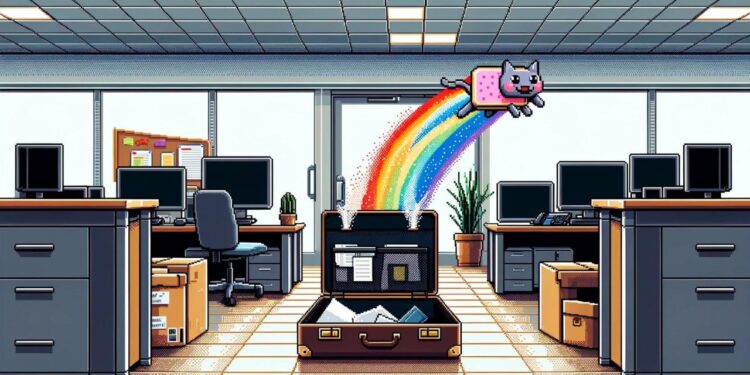- When possible, before your last day on the job, make sure to forward any important information that you think would be of use to you in future endeavors — including contact information and material for your professional portfolio.
- As the saying goes, “No experience is bad experience,” at least when it comes to the time invested into one’s own professional career.
- In an era dominated by remote work, AI, and social media, a personal cover letter is still important. One study conducted by ResumeGo reveals applications with tailored cover letters had a 53% higher callback rate than applicants without any cover letter.
There is a Japanese philosophy called Kaizen, which means “continuous improvement” or “change for the better.” The term is often cited by professionals as a mindset to help create self-assessed pathways for one’s further professional development.
If you’ve been laid off or expect that it’s coming, adopting that attitude can dramatically impact your experience after it happens.
Believe it or not, sometimes being laid off can be a blessing in disguise because it can open up pathways for self-improvement. It also holds the door open for new opportunities that ask for the work experience that you have garnered up until this point in your career.
As the saying goes, “No experience is bad experience,” at least when it comes to the time invested into one’s own professional career. Everything you have accomplished before getting laid off can be used as a springboard for the next great opportunity, and the growth potential is practically unlimited, as long as you have a desire to put in the work.
Here are five steps to take to survive the turbulent time immediately following a layoff. If done right, and with a little bit of luck, you may be able to turn getting laid off into a positive career move.
1.Prioritize saving your contacts, and forward any emails that would help your resume and, if applicable, your portfolio.
If possible, before your last day on the job, make sure to forward any important information that you think would be of use to you in future endeavors. This includes:
- New details to cite in your resume or cover letter.
- Material that can be used in your professional portfolio that demonstrates your skills and talents.
- Contact information for future references.
- Names of coworkers and colleagues that you would like to connect with on LinkedIn.
- Names of professional conferences and events that have been brought to your attention while working at the company (for future networking possibilities).
According to an article published by Enhancv, one of the best job search methods is to go through your own personal network. This includes both from online websites and by word of mouth. So saving contact information from previous professional colleagues is a great head start on the process ahead.
2.Take personal time to process what happened.
Even if you stay positive and look at a layoff as a new opportunity, it’s not easy — losing a job can be emotionally and financially crushing. You may have absolutely loved the opportunity you were just released from. After your final day, it is important to take time to reflect, but more importantly, take time for your health and mental well-being. Sorting through potential feelings of loss, betrayal, and fear takes time and effort.
There are studies that suggest taking downtime, or a vacation, from work provides many positive health benefits. Research highlighted by Health Net suggests that vacations offer multiple health benefits including lowering heart disease risk, and the likelihood of experiencing depression and stress. When money is tight, a staycation can also provide similar benefits.
Another benefit is increased productivity. A study conducted by Ernst & Young reveals that for every additional 10 hours of vacation time taken by employees, their year-end performance ratings improved 8%.
After taking much needed personal time for reflection, you can come back focused to take on the next big step in your career.
3.When you’re ready, inform your network that you have been let go.
Sometimes a layoff can evoke feelings of shame or inadequacy, which might make you feel that you have to keep it a secret. But doing that can backfire in big ways.
The seclusion can actually make it harder on yourself. Plus, you would be limiting your career opportunities, and you would be isolating yourself from peers in your field. This kind of seclusion from other professionals is a factor contributing to the loneliness epidemic in the workforce. This would only add to the doom and gloom cycle that many researchers say have an impact on mental health.
Sometimes the best opportunities are found just by word of mouth, and LinkedIn takes word of mouth to the next level. According to an article published by LiProspect, “The average engagement rate on LinkedIn is approximately 2-4%. This means that, on average 2-4% of your audience will engage with your content through likes, comments, and shares.”
Therefore, LinkedIn can be used as a powerful tool for job seekers, and engaging with your LinkedIn network on your employment status could increase your odds for establishing potential job leads and new connections.
In other words, have the courage to speak up. By enhancing your visibility it helps to establish your credibility, and by opening up to your professional network you will likely find new avenues for job opportunities — or at the very least be pointed in the right direction and find emotional support.
4.Update your resume. Carefully, and honestly.
When announcing your layoff and seeking support, you should be ready at any moment to send your resume out to any hiring manager or acquaintance who requests it. Careful reading of every detail mentioned on a resume is key. You also need to avoid resume red flags that could cost you the chance for an interview. Take this attention to detail a step farther and have a friend also proofread the document. When you’ve looked too closely at something for a long time, it’s easy to miss typos, which can cost you a job.
It’s also important to be honest. If you land an interview, employers are going to ask you about your previous employer, and rather than making up a story, be honest. It not only established additional credibility, it shows employers that you’re serious about the potential job and organization showing an interest in you.
According to an article published by Flexjobs, “focus on your accomplishments.” It’s one thing to simply explain that you got laid-off, but go a step further and establish why you succeeded. Hiring managers want to know what you have accomplished with the time spent working with your previous employer. So, do your best to lay that information out in your resume in a concise manner.
5.Write a customized cover letter.
In an era dominated by remote work, AI, and social media, a personal cover letter is still important. One field experiment conducted by ResumeGo between July 2019 and January 2020, sent 7,287 fictitious job applications to job openings found on job boards including ZipRecruiter, Glassdoor, and Indeed. The data revealed that applications with tailored cover letters had a 53% higher callback rate than applicants without any cover letter. This suggests that submitting job-specific cover letters is still important in the modern workforce.
While crafting your cover letter, you might wonder about whether or not to mention being laid off?
Yes, you absolutely can, but don’t make the whole letter about how you regret informing them about what happened. According to an article on the topic published by LiveCareer, one should “keep the details to a minimum.” You don’t want to linger on the topic. Rather, just like your resume, focus on your accomplishments during the time spent in your previous position, and make sure to always express how these accomplishments relate to the new job opportunity.
You should look at this unexpected turn as an opportunity to take your career to the next level. These tips should benefit you, especially if you can approach job hunting with an open mind to new opportunities.

















